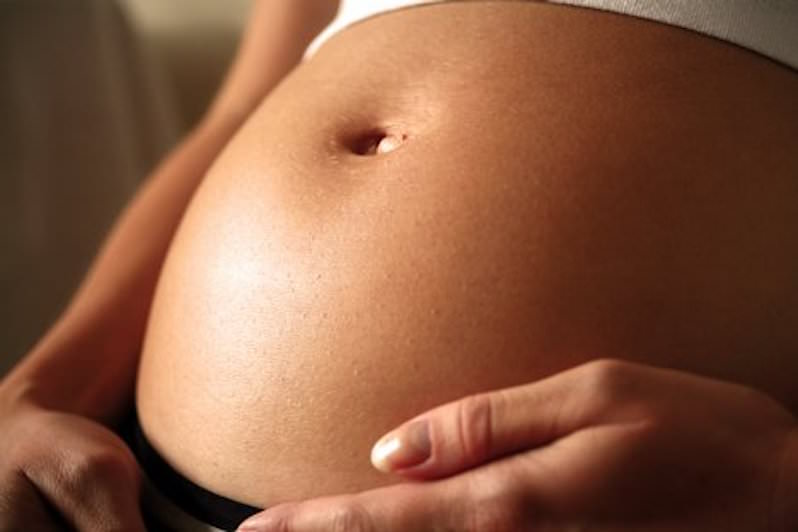The Selling of Subordination: How the Female Body Is Reduced to Products
Welcome to the marketplace built on women’s oppression, disposability, desperation and despair.
Women’s hair, breast milk, wombs and orifices are for rent or sale around the world. It is the intersection between capitalism and patriarchy. Those campaigning to abolish the sex trade are highlighting the links between all forms of the body trade and are beginning to organize against it. The shocking fact is that in many countries, the brokering, buying and selling of bits of human females are perfectly legal. Welcome to the marketplace built on women’s oppression, disposability, desperation and despair.
As a feminist writer and campaigner against male violence toward women and girls, I am deeply troubled by the increasing normalization of the commodification of the female body. While organizing against the sex trade over the past two decades, I have come across related forms of commercial exploitation of women and girls, such as surrogacy, egg removal and the sale of breast milk and hair.
In a series of articles, I will report from Romania, Ukraine, Israel, California, the U.S. and Greece on this grotesque marketplace to expose the brokers who profit from these so-called products and services and the people who create the demand for women’s body parts. I will speak to the sellers, buyers and those who advertise these products and consider the effects on the girls and women who are being exploited.
The babies born of desperate, abused women are also peddled on the open market. During a trip to Hungary this fall I will report from a village where one of the most notorious baby farmers — where babies are sold to those looking for quick and easy adoptions — presented his commercial business as altruistic rather than criminal and inhumane.
There are now thousands of clinics offering to outsource every aspect of fertilization, pregnancy and childbirth. In this neoliberal marketplace, it takes several businesses to build a family.
In Gujarat, India, in 2015, I spoke to Labh, a waiter in my hotel, who told me that he had just sold 20 inches of his daughter’s hair to a man who comes every few weeks to buy the flowing locks of girls and women who need money. In India and many other countries where hair traders seek their prey, girls are stigmatized and often punished for having short hair. Despite this, many fathers sell their locks to supplement the family income.
Labh tells me this is not the case in Chennai, where by Hindu custom women pray at the temple while their hair is shaved as a sacrifice to the gods. I ask what happens to the hair. “It is sent to auctions, and then sent to America and Europe,” Labh says.
I was in Gujarat to investigate the rent-a-womb business, also known as surrogacy. Although India is the capital of the surrogacy market, and Gujarat the main city within India for womb-trafficking, this market operates in many countries around the globe.
Surrogacy has recently been repackaged and presented as a human rights issue for gay men and others desiring their own baby who cannot conceive the traditional way. It is outrageous to me that the decisions of rich, gay men and other people should be held above the rights of impoverished, exploited women.
“The surrogate women don’t come from the wealthy or affluent communities,” Jennifer Lahl, founder of Stop Surrogacy Now, told me when we met in Paris at a seminar entitled “Vers l’abolition de la GPA” (“Toward the abolition of all surrogacy”).
“[The U.S.] does not have destitute poverty like they do in India, but [potential surrogates] are low-income women, often young moms, sometimes military wives. You can see the targeting and the advertising directly towards this demographic,” says Lahl.
One thing that horrified me during my trip to Gujarat, where I visited several surrogacy clinics posing as an infertile woman wishing to outsource my pregnancy, was that a number of the women who act as surrogates are also pressured into selling their breast milk to the commissioning parents. Despite the fact that the women are not allowed to hold their babies when they are born, they are often asked to wet nurse their child for some time if the parent/s cannot collect the baby immediately because of work commitments or complicated travel arrangements. The psychological pain of breastfeeding a baby with whom you are not allowed to bond was described to me, by one woman who endured this process, as “torture.”
Breast milk is also sold via pornography, with lactating women being filmed by pornographers to satisfy men with a milk fetish. Sexylactation.com hosts such porn. The site header reads, “No nipples resist the strong suction of our milking machines and breast pumps. WE MILK THEM ALL DRY.”
“This lovely lactating babe was so full of milk that just bending over made her swollen boobs start leaking,” the site says. It went on to describe the woman as a “cow.”Via Skype, I spoke to Maria, a 20-year-old mother living below the poverty line in Kiev, Ukraine. She was introduced to me by an international aid agency she appealed to for help in dealing with her abusive landlord.
“I had no choice but to sell what should be for my baby,” Maria told me. “It was all I had—that, or selling myself for sex. I had no idea people wanted this milk until my landlord told me it was my only way to pay my rent. I have no idea how much he sold it for, but my breast hurt and I felt humiliated and ashamed for doing this. I can’t really explain why.”
Although poverty is the main driver in the sale or rental of female body parts and functions, the market only exists because women are objectified and have inferior status to that of men. Egg donation is one area in which the commodification of the female body—the notion that there is revenue in reproduction—has swept up women in need of cash.
Egg-trade entrepreneurs target white, conventionally attractive young women, often college students, as donors. Commissioning parents leaf through catalogs featuring photographs of egg donors to design their baby of choice. Hair and eye color, height, racial and ethnic heritage, hobbies and IQ levels are listed in the descriptions. There are assurances that no criminal or deviant behavior, mental or physical illness or disability runs in the donor’s family. Advertisers pitch the notion that egg donors earn money while helping infertile couples achieve their dreams.
“I wanted to finance a [post-graduate degree] in business,” Alice, a hairstylist and single mother, told me. “It made absolute sense that I would raise money by helping people out, and it only caused me slight discomfort.” Alice’s experience was fairly positive, but she says she does worry about meeting her unknown child one day in the street and thinking, “That is the image of me.”
“I didn’t really think it through at the time—that one or maybe more babies will be born from my eggs,” she added.
There are a number of known risks of egg donation, including ovarian hyper-stimulation syndrome, a condition that causes the ovaries to swell painfully in approximately 25 percent of women who use injectable fertility drugs. Surgery to extract eggs can also lead to complications, such as severe stomach pain, infection and bleeding.
The long-term risks of egg donation remain largely unknown. There is little long-term safety data on the infertility drugs commonly used to stimulate egg production, and there have been no follow-up studies on egg donors.
The trade in eggs is similar to tobacco advertisements in the bad old days. Potential harms and negative effects are not included, or are significantly minimized. The blog We Are Egg Donors commissioned Hillary Alberta-Sherer, a Ph.D. student, to do a content analysis of egg donor advertisements. Of 424 ads she studied to learn to what extent potential donors are warned about risks, she found only 68 that included the term “risk(s).”
In an interview with Jennifer Lahl, executive producer, director and writer of the documentary “Eggsploitation,” Linda describes her experiences as a three-time egg donor:
The first time went very easy; the pain wasn’t that bad. However, it still hurt and I had pain in my abdomen, and I couldn’t walk afterward. The second time, it hurt a lot almost right after I woke up two hours after the egg retrieval. The third time was by far the worst. I woke up two hours after, but the pain hit me four hours later.
I felt used and just like an egg producer. I felt like all they cared about were my eggs, and not me and my health and well-being.
While terrible crimes are perpetrated against women and girls because of our biology, our eggs, wombs, vaginas and other body parts and products are providing profit to pimps and other third-party exploiters. Women will not be free until our bodies, in their entirety, belong to us and us alone.
Julie Bindel is an English journalist, writer, broadcaster and researcher. She has written extensively on rape, domestic violence, sexually motivated murder, prostitution and trafficking, surrogacy, stalking and the rise of religious fundamentalism and its harm to women and girls. She writes regularly for The Guardian, the New Statesman, and Standpoint magazine. She is the author of “Straight Expectations” and is currently researching a book on the global sex trade, entitled “The Pimping of Prostitution: Abolishing the Sex Work Myth,” to be published in 2017.
Independent journalism is under threat and overshadowed by heavily funded mainstream media.
You can help level the playing field. Become a member.
Your tax-deductible contribution keeps us digging beneath the headlines to give you thought-provoking, investigative reporting and analysis that unearths what's really happening- without compromise.
Give today to support our courageous, independent journalists.




You need to be a supporter to comment.
There are currently no responses to this article.
Be the first to respond.